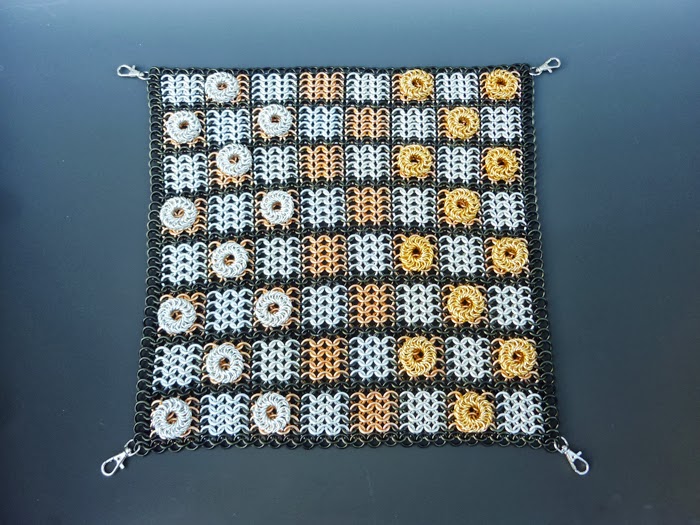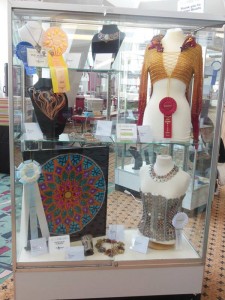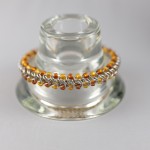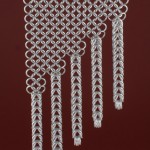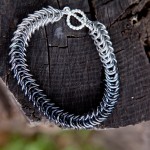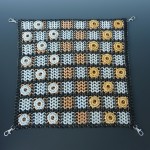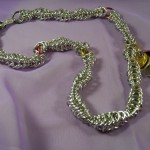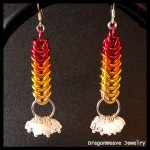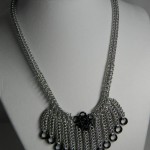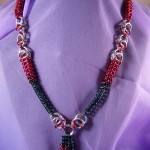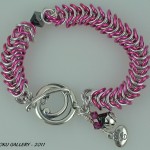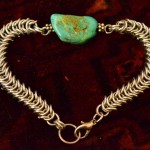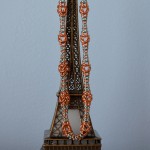One question new jewelry artists often ask when preparing to do their first show is, “What kind of 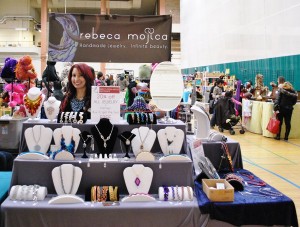 jewelry should I make?”
jewelry should I make?”
Of course there is no be-all, end-all answer. All shows are different, and even the same show is different in different years. However, I can offer a few tips on what has worked for me. Be sure to also see our article with tips on how to maximize your sales at an arts & craft fair.
1 – Know your audience
Audiences for shows can vary. For instance, I have one show that draws big spenders, and I know I will sell multiple sterling silver bracelets at this show. For other shows I am certain that attendees are looking for items with lower price points, so while I might have a few sterling bracelets out, they take backstage to less expensive jewelry that I believe will sell better.
I highly recommend visiting a show before applying for it, or speaking with non-competing vendors who have done the show. This way, you’ll be able to get a feel for the types of people you’ll encounter in your booth and can tailor your inventory to meet their expectations. Do market research (formal, or informal) to find out what they buy, how they like to buy, and what sorts of marketing/branding appeals to their demographics.
2 – When in doubt, make more earrings
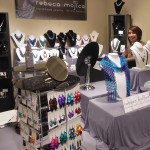 Earrings are by far my best-seller at shows, and this is the case for 90% of the jewelers I talk with, at least those who do a traditional mix of bracelet/necklace/earrings. Of course, if you specialize in pendants or rings or something other than earrings, then it doesn’t make sense for you to make earrings just for the sake of making earrings. Don’t dilute your brand by trying to be something you’re not.
Earrings are by far my best-seller at shows, and this is the case for 90% of the jewelers I talk with, at least those who do a traditional mix of bracelet/necklace/earrings. Of course, if you specialize in pendants or rings or something other than earrings, then it doesn’t make sense for you to make earrings just for the sake of making earrings. Don’t dilute your brand by trying to be something you’re not.
But if earrings are a normal part of your inventory, definitely make sure to have plenty on hand before a show. I’ve found that often when I display an intricate, expensive piece, people are drawn to it but cannot afford it. So I started creating earrings that mimic the motif of the expensive piece, and display the earrings next to this piece. This has led to increased sales for those earrings; it seems as though when people find art they really like and they can’t own the entire piece, they are OK purchasing a smaller piece because it allows them to support the artist and own just a bit of the design that captured their hearts.
While I display most of my earrings all together in a group, I also scatter a few earrings throughout my booth, next to necklaces and bracelets that are in the same collection. Sometimes I have the same earring design on an earring tree as well as next to a necklace, and it is interesting to note that often the stand-alone earring sells three times over before the one on the earring tree sells. (Yes, for my best sellers I bring multiples in the same color scheme, so I can replace them as they sell.)
3 – If this is a holiday show, consider one or two holiday items. Or otherwise cater to your audience’s color themes.
 This doesn’t mean to get all kitchy and deviate from your brand. However, I’ve noticed that during the holiday season, there are certain shows in which women are specifically looking for holiday-themed earrings or jewelry because they have a holiday work party to attend. It is best if the jewelry is more “neutral” (for instance, think of a bracelet with alternating stripes of red and white, rather than a red and green wreath brooch) so they can possibly wear it beyond the holiday season. However, I’ve also had several women purchase red/green/gold earrings that screamed “holiday!”. The price point on the earrings was low enough ($18 and under) that they felt justified in spending the money for something they’d only wear a few weeks out of the year. If you can make ornaments, consider making a few even if only to decorate your booth with your art.
This doesn’t mean to get all kitchy and deviate from your brand. However, I’ve noticed that during the holiday season, there are certain shows in which women are specifically looking for holiday-themed earrings or jewelry because they have a holiday work party to attend. It is best if the jewelry is more “neutral” (for instance, think of a bracelet with alternating stripes of red and white, rather than a red and green wreath brooch) so they can possibly wear it beyond the holiday season. However, I’ve also had several women purchase red/green/gold earrings that screamed “holiday!”. The price point on the earrings was low enough ($18 and under) that they felt justified in spending the money for something they’d only wear a few weeks out of the year. If you can make ornaments, consider making a few even if only to decorate your booth with your art.
I once made a silver snowflake pendant on a whim, and then had a customer come by who was obsessed with snowflakes, and so she HAD to have that pendant! I’ve since made a few more, usually in alternating years (so my inventory doesn’t appear the same from year-to-year for my repeat customers) and have sold them at my winter shows.
And remember, I said there are certain shows in which people are looking for holiday items. Remember point #2 – know your audience. If they are going to be disgusted by holiday/religious/seasonal stuff, don’t put it out!
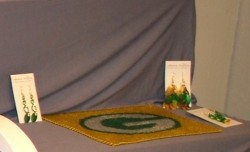 Even if it is not the holiday season, you may be able to provide items in colors that mean something to your customers. If there is a lot of support for your local school, university or professional sports teams, consider displaying a small sign with the school mascot, or some other visual representation of what your colors mean. Then place appropriately colored jewelry next to the display. I often bring my Green Bay Packers inlay and display green and gold earrings next to it. (The photo at right was taken on the last day of a show, after I’d already sold 7 pairs of Packers earrings!) Packers fans see the inlay, get really excited, and often wind up purchasing multiple pairs of earrings for themselves and friends. There are plenty of other non-sports teams color options too. You can create pride jewelry if you have a LBGTQ community. Or various colors for supporting medical conditions. And so on, and so on: the list is endless.
Even if it is not the holiday season, you may be able to provide items in colors that mean something to your customers. If there is a lot of support for your local school, university or professional sports teams, consider displaying a small sign with the school mascot, or some other visual representation of what your colors mean. Then place appropriately colored jewelry next to the display. I often bring my Green Bay Packers inlay and display green and gold earrings next to it. (The photo at right was taken on the last day of a show, after I’d already sold 7 pairs of Packers earrings!) Packers fans see the inlay, get really excited, and often wind up purchasing multiple pairs of earrings for themselves and friends. There are plenty of other non-sports teams color options too. You can create pride jewelry if you have a LBGTQ community. Or various colors for supporting medical conditions. And so on, and so on: the list is endless.
4 – If you are in a juried show, make sure you sell what you put on your application!
This seems obvious, but having worked as a show organizer, I’ve seen first-hand when someone applies for the show with one type of product (let’s say candles), and then shows up with completely different products (such as greeting cards). This is in extremely bad form!
It doesn’t matter if you apply for the show 9 months ahead of time and have decided your creativity is sparked by something else closer to show date. You need to vend the items that were on your application, or similar work. If you don’t, you risk note being invited back. You will possibly even be asked to leave by the show organizers, especially if other vendors notice (and believe me, if they are selling the same items as you, and are right next to you, they will most certainly notice!) and complain. This is Show Etiquette 101, but it still amazes me how many times I see vendors not complying.
What should you do if you feel your work has changed drastically since you applied for the show? Contact the show organizers, explain your situation and show them photos of your work. And then let them decide if they believe you should show your new work, but don’t be surprised if they request that you either dig up old items or request that you bow out.
5 – Bring additional components
If you bring jewelry, you will find it can increase your sales if you are able to customize pieces on the spot. This could mean swapping out one color pendant for another, selling a pendant without a chain, resizing a piece, or swapping earwires.
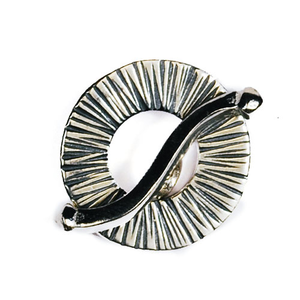 Since I make chainmaille, it is usually very easy for me to resize most pieces. I try to take extra “clasp” rings and popular size rings in case I need to make a bracelet slightly larger or smaller. I’ll also have extra clasps because some people love toggles and others don’t. This way, I can swap out the original clasp for something more to their liking. If it takes me only a few minutes, and guarantees a sale, it’s worth it to me! I don’t charge for these services, unless the length being added is greater than 1 inch, or if the cost of the new materials (particularly if sterling) is significant.
Since I make chainmaille, it is usually very easy for me to resize most pieces. I try to take extra “clasp” rings and popular size rings in case I need to make a bracelet slightly larger or smaller. I’ll also have extra clasps because some people love toggles and others don’t. This way, I can swap out the original clasp for something more to their liking. If it takes me only a few minutes, and guarantees a sale, it’s worth it to me! I don’t charge for these services, unless the length being added is greater than 1 inch, or if the cost of the new materials (particularly if sterling) is significant.
I also bring extra earwire in a variety of metals, including hypoallergenic niobium. I try to have 2-3 sets of clip-ons or screw-on earrings as well. For a while, they were in high demand, and then demand waned. However, at my last show I had 3 customers request clip-ons, so I am definitely going to be stocking a few for the next show. I usually charge a small fee to switch to clip-ons, because those components are far more expensive than the regular hook earwires I use. And of course, there is an additional fee for upgrading to silver or gold earwire. Customers completely understand the cost of the materials, and they never bat an eye when I tell them about the fee.
Have a great hint that I didn’t mention? Share it in the comments below! It’s great to learn what works in different parts of the country and the world 
This article is part of Blue Buddha’s series: Behind the Scenes at a Craft Fair.
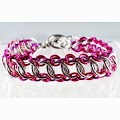 For July, we’re featuring Half Persian. This weave is commonly used to make men’s jewelry, but it has no problem embracing it’s feminine side! Sturdy, yet delicate and slinky – this weave has it all. Tackle this project using Half Persian 3-in-1 or Half Persian 4-in-1 (aka Flat Persian, Snake Chain). We can’t wait to see what you come up with!
For July, we’re featuring Half Persian. This weave is commonly used to make men’s jewelry, but it has no problem embracing it’s feminine side! Sturdy, yet delicate and slinky – this weave has it all. Tackle this project using Half Persian 3-in-1 or Half Persian 4-in-1 (aka Flat Persian, Snake Chain). We can’t wait to see what you come up with!